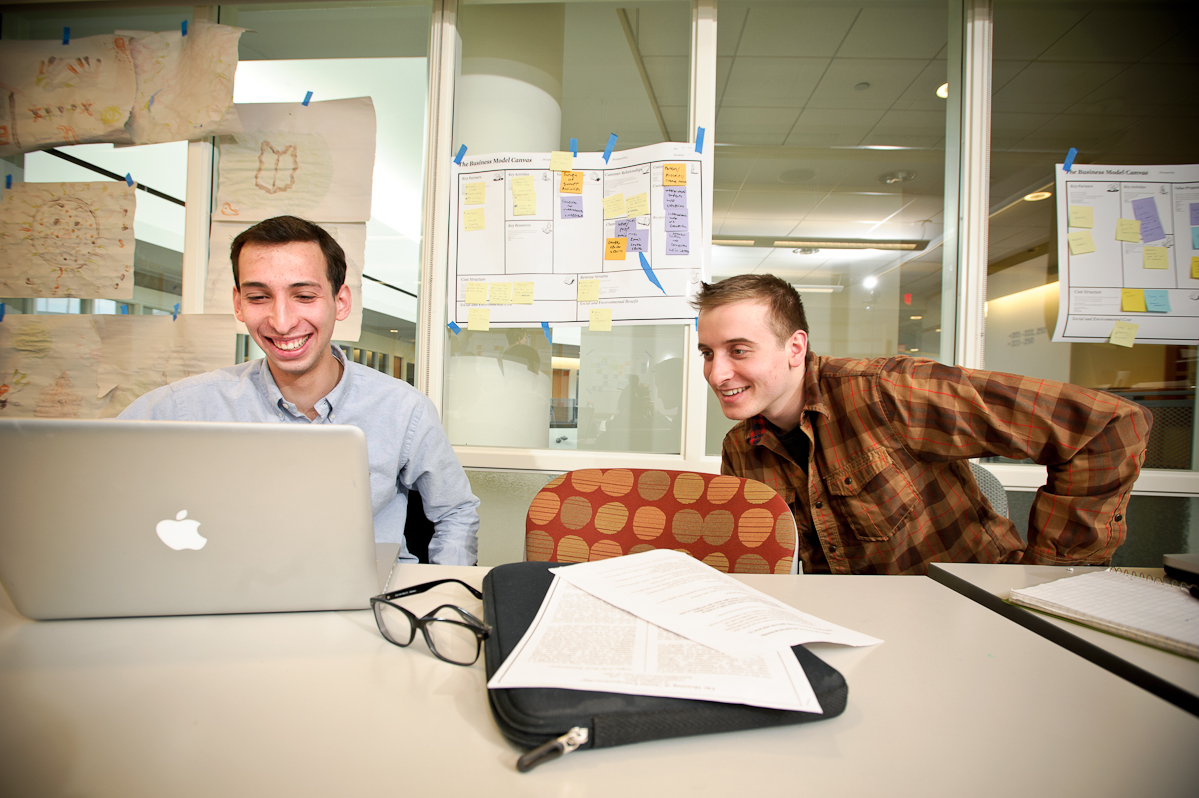
The Levitt Center kicked off its first ever Social Innovation Fellows Program during the second week of Hamilton’s spring break. The program was designed and run by Anke Wessels, executive director of the Center of Transformative Action, a non-profit affiliated with Cornell University that provides fiscal sponsorship to innovative social change agents. Her course, “Social Innovators and Entrepreneurship,” was selected by the Ashoka Foundation as one of the 10 best social entrepreneurship courses in the country in 2011. The Social Innovation Fellows Program was a weeklong intensive program designed to be a condensed version of Wessel’s award-winning course.
The program taught participants about social problems that exist within our society and used readings along with case studies to inspire ideas about how to fix these problems. The dynamic course brought together 13 students from different disciplines and class-years to collaborate and bounce ideas off one another.
Students learned about the different paradigms used by various innovative businesses models to be less hierarchical and more focused on results and solutions. These solution-based models concentrated their time and efforts on collective action and collaborative engagement to come up with ways to enhance efficiency by finding common ground. These shifting paradigms helped to influence participants’ ideas about how to address issues we see within our communities.
In choosing their own innovative projects, the students first did exercises to determine what they felt passionate about changing within their communities and then came up with innovative ways to solve these problems. Some ideas were focused on Hamilton’s campus, while others were focused within other countries. Once participants mapped out their projects, they looked at other business models to figure out ways to assess their potential impact within these communities. Finally, they pitched their ideas and projects to gain further feedback on how they could make them better.
Students saw the workshop as an opportunity to take a step back from the coursework within on-campus disciplines and personal lives to assess problems within the world. One participant summarized, “Learning how to work hard, but also efficiently and collaboratively will be increasingly important in our ever-changing globalized world.”
Posted March 31, 2014
